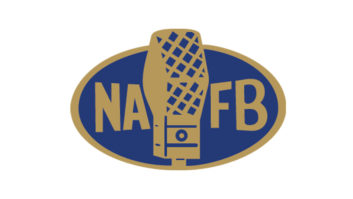Financial Growth
Oct 1, 2006 12:00 PM, By Kari Taylor
The 2006 Radio magazine Salary Survey is the tenth salary survey the magazine has created for its radio broadcast readers. Many things have changed since the first survey in 1997. Digital radio has significantly increased in popularity. Consolidation has greatly reduced the number of station engineers currently employed. Through it all, radio engineers’ salaries have consistently increased.

In 1997, Radio magazine asked the question: How do you fare among your peers? That year, station management salaries showed a marked difference between large and small markets. The median salary for the Top 50 market was $44,374 and for the Below Top 50, the median salary was $32,916.
Surprisingly, $44,374 is less than the median Top 50 staff engineer earned on average that year: $52,999. But times have changed. According to the 2006 survey, station management now earn the highest salaries of everyone. The overall median salary for this category in 2006 is $87,999.
This year’s salary survey shows a significant increase in salaries since 1997. The estimated median salary for station management in the Below Top 50 market is $52,857. This is actually a significant increase even from 2005, when the median salary was about $7,800 less.
In 1997, 30 percent of the survey respondents held the title of chief engineer. This job title has remained stable throughout the years and in the 2006 salary survey, 27 percent of respondents hold the title of chief engineer. These engineers’ salaries have also remained stable with incremental increases each year. In the 1997 salary survey Radio magazine reported that the median salary for a chief/staff engineer in the Top 50 market was $52,999. In the 2006 salary survey the median salary in this market is $65,833. For the Below Top 50, the median salary was $33,999 in 1997, but in 2006 the median salary is $46,111.

There are many comparisons that can be made between the 1997 and 2006 salary surveys. For instance, the monetary difference between the Top 50 market staff engineer and Below Top 50 market staff engineer stayed the same throughout the years. In 1997 the difference between the median salary of a Top 50 staff engineer and a Below Top 50 staff engineer was $19,000. In 2006, the median salary difference between the two markets for a staff engineer is the same: $19,000.
Also, inflation has increased 27 percent since 1997. The inflation rate in 1997 was 2.3 percent. For the first half of 2006, the inflation rate average was 3.8 percent. (A $40,000 salary then is worth about $50,000 now.) Overall, radio engineers’ salaries have grown by about 29 percent since the 1997 survey. Therefore, the radio industry has not only kept up with the inflation rate but also provided a little extra cash.
This year’s survey revealed that more than half (56 percent) of contract engineers earn an hourly rate of $50 or more. This is a significant increase from last year’s salary survey when only 39 percent of contract engineers charged $50 or more an hour. Fifty-two percent of the respondents base their charges on time only. The rest base their charges on a combination of time and a fee. Also, according to the 2006 survey, on average, contract engineers bill 16.2 hours per week. Thus, the average contract engineer who negotiates a fee of $50 an hour and works 16.2 hours a week will earn about $42,120 this year.
Contract engineer or not, most respondents to the 2006 survey work for one or more radio stations. These engineers are personally responsible for an average of 3.6 stations. The average engineering department consists of two employees and those two people generally are responsible for four stations.

Growth spurts
The 1997 survey didn’t review the job description for engineers, but suffice it to say they mostly worked on audio and RF equipment. In today’s world, the radio engineer’s job description has grown to include much more than these two staple areas of expertise. In this year’s survey respondents were asked if computer, IS and IT functions are considered part of the engineering department’s responsibility. Overwhelmingly, 68 percent responded yes.
Not only that, but digital radio and multicasting technology are propelling the industry in a new direction. One in four stations intend to commence IBOC operations and 19 percent already have. Engineers need to stay up-to-date on the latest technology.
Keeping this in mind, we asked how many of the respondents have attended seminars in the past year in an effort to learn new skills or learn about a new technology. Not surprisingly, 60 percent have attended an educational seminar in the past two years. Of that 60 percent, most of the engineers took an online course (55 percent) and several went to a regional or local event (39 percent). Trade publications accounted for 32 percent of training and books 30 percent.
There are several organizations that can improve a person’s skill set. Twelve percent of respondents hold ARRL membership and four percent hold an IEEE membership. Similarly, six percent hold Microsoft certifications and two percent hold Novell certification.

The Society of Broadcast Engineers accounted for 19 percent of respondents taking an educational seminar. The percentage of engineers in 2006 who hold some level of SBE certification is 25 percent. And the estimated median salary in the Top 50 market for an engineer with an SBE certification is $72,999. It is $52,999 for an engineer in the Below Top 50 market.
According to the survey, regional directors/corporate engineers (46 percent) and station chief engineers (44 percent) are most likely to be SBE certified. Those engineers who hold certification are most likely to be at the CBNT (28 percent of respondents) or CPBE (26 percent of respondents) level. Operations staff and managers are the least likely to hold a SBE certification; only three percent of of these respondents hold a certification.
So what are the main reasons people don’t hold any professional certifications? Each year as part of the salary survey, Radio magazine asks the respondents to answer open-ended questions. We asked the people taking the survey to tell us just that. The answers were broad but some of the more popular responses included:
- Not having enough time
- Their employer doesn’t pay for it or doesn’t require it
- Can generally get by with accumulated knowledge and customer service
- Not having them hasn’t held them back
- No managers I know of respect a certification enough to make a difference.
Another question we asked in the 2006 survey was �What type of educational, instructional or tutorial topics would be most valuable to you?� Here are some of the responses:
- Anything technical, emerging technologies, RF refresher
- At this point in my career, how to be patient with my trainees
- Digital audio techniques, streaming
- HD Radio
- How does an older broadcaster survive in these changing times?
- More hands-on �how to� articles on using the gear and what can be done with off-the-shelf components
Growing pains
While salary growth is good news, it can also bring more work and more stress. Another question the survey asked respondents was �If you could change one thing to improve your current job, what would it be?�
Some of the answers were obvious (i.e. money) but others were more interesting:
- Get rid of nepotism
- Fire my boss
- Artificial deadlines imposed by management. You would think this is the hospital trauma center around here.
- Can I please get four or five extra hours in my day?
- Kill all the lawyers
- Massage therapist on staff
- I am really very fortunate. The two companies I work for are considerate and do not make unreasonable demands.
The Salary Survey report is available for purchase from Prism Business Media for $99. The entire report includes complete data statistics and tables, and all the respondent write-in answers. Purchase the report at this link.
The radio industry has endured many changes since 1997, and that includes engineers’ salaries. But of all the comparisons made between the 1997 survey and the 2006 survey, there is one enduring theme: the change in salaries has been positive with consistent growth.
Evaluating growth
In May 2006 Prism Business Media e-mailed invitations to participate in an online survey to more than 3,500 subscribers of Radio magazine on an nth name basis. The results of the study are presented by job title group and market rank (Top 50 and Below Top 50). Where appropriate, medians have been presented for numeric responses.
The information gathered in the survey is intended to illustrate the broad trends in the industry. Treat the data as a starting point for salary ranges. Factors such as cost of living and the demand for a particular job are also important in determining a salary range.












